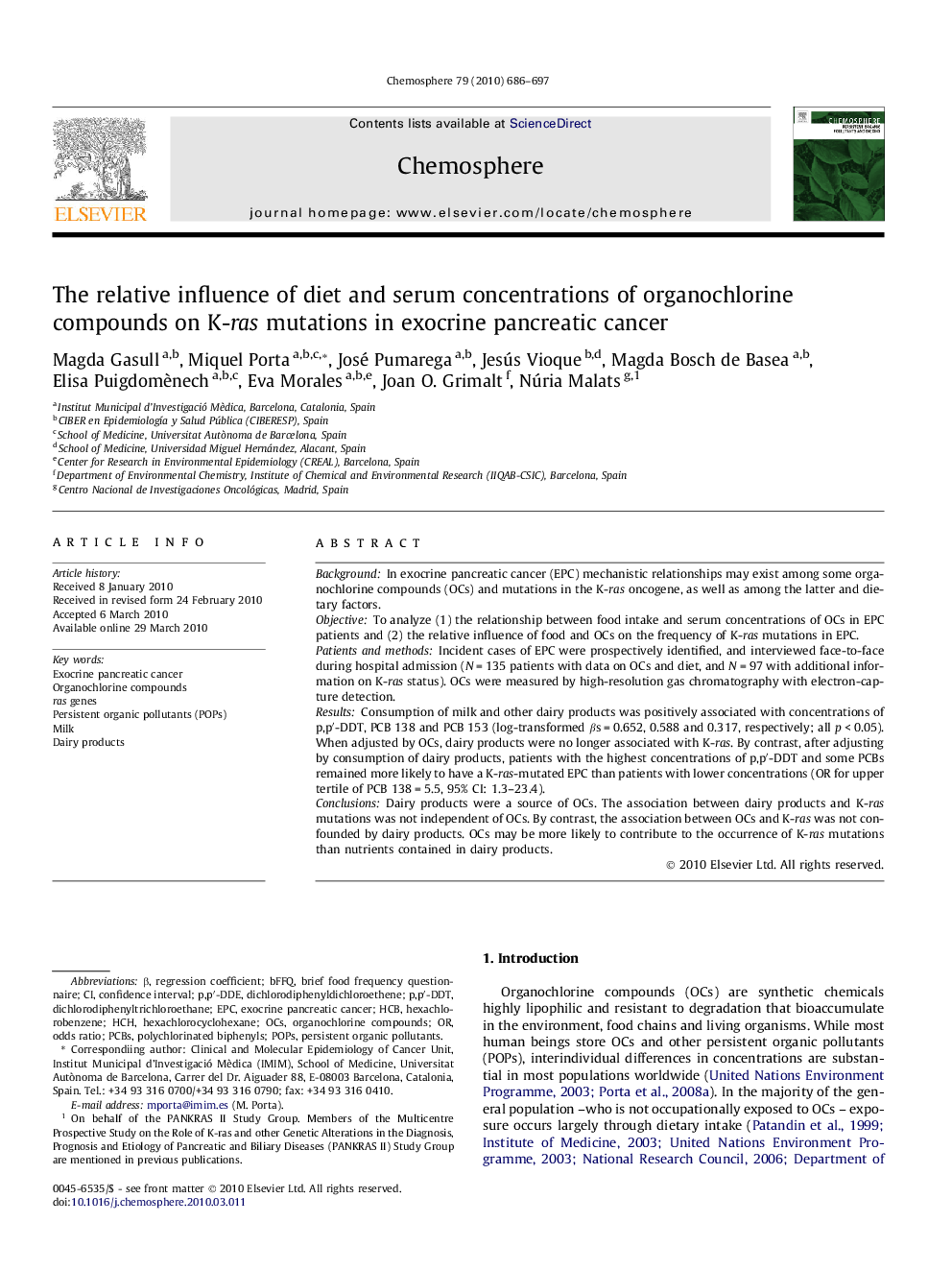| Article ID | Journal | Published Year | Pages | File Type |
|---|---|---|---|---|
| 4412338 | Chemosphere | 2010 | 12 Pages |
BackgroundIn exocrine pancreatic cancer (EPC) mechanistic relationships may exist among some organochlorine compounds (OCs) and mutations in the K-ras oncogene, as well as among the latter and dietary factors.ObjectiveTo analyze (1) the relationship between food intake and serum concentrations of OCs in EPC patients and (2) the relative influence of food and OCs on the frequency of K-ras mutations in EPC.Patients and methodsIncident cases of EPC were prospectively identified, and interviewed face-to-face during hospital admission (N = 135 patients with data on OCs and diet, and N = 97 with additional information on K-ras status). OCs were measured by high-resolution gas chromatography with electron-capture detection.ResultsConsumption of milk and other dairy products was positively associated with concentrations of p,p′-DDT, PCB 138 and PCB 153 (log-transformed βs = 0.652, 0.588 and 0.317, respectively; all p < 0.05). When adjusted by OCs, dairy products were no longer associated with K-ras. By contrast, after adjusting by consumption of dairy products, patients with the highest concentrations of p,p′-DDT and some PCBs remained more likely to have a K-ras-mutated EPC than patients with lower concentrations (OR for upper tertile of PCB 138 = 5.5, 95% CI: 1.3–23.4).ConclusionsDairy products were a source of OCs. The association between dairy products and K-ras mutations was not independent of OCs. By contrast, the association between OCs and K-ras was not confounded by dairy products. OCs may be more likely to contribute to the occurrence of K-ras mutations than nutrients contained in dairy products.
